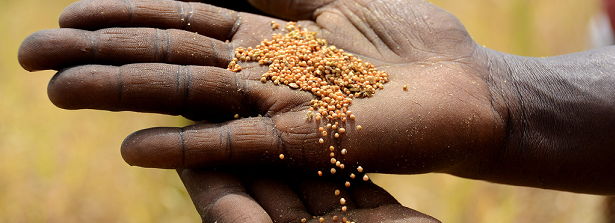Scaling climate-smart nutrient management tools in Africa

Duration: January 1, 2018 – December 31, 2020
Project information
Summary: This project “Understanding and improving scaling readiness of climate smart, nutrient management decision support tools (DST) in different institutional environments: Ethiopia & Tanzania” addresses the challenge of scaling climate smart nutrient management among African smallholder farmers by addressing the institutional factors and conditions relating to CSA knowledge service delivery (the CCAFS overall research question). It aims to understand and improve the ‘scaling readiness’ of climate smart, nutrient management decision support tools (DST) in different institutional environments: Ethiopia and Tanzania. ‘Scaling readiness’ is seen as the product of: (a) the fit between the DSTs (and its constituent climate smart nutrient management advices) and their envisaged users who operate at different scales, and; (b) the necessary (institutional) conditions which enable scaling by these different actors (i.e. extension, NGOs, agro-dealers). By working directly with different users operating at different scales, we examine the user logics that can inform the design of better decision support tools and the enabling (institutional) environments, which together shape the effective scaling of climate smart nutrient management advice.
CCAFS project alignment: The CCAFS project “Bringing CSA practices to scale: assessing their contributions to narrow nutrient and yield gaps (P250)” quantifies nutrient input gaps for various levels of maize yield gap closure in Ethiopia, Kenya and Tanzania. It develops nutrient management packages using the 4R principles for fertilizer use (Right type, Right amount, Right time and Right place) for smallholder maize growers in different environments. The project also assesses economic and GHG emission performance of different alternatives. The project then focuses on effective scaling.
The project closely aligns with the Taking Maize Agronomy to Scale (TAMASA) project, led by CIMMYT and funded by BMGF. Together with its partners in Ethiopia, Tanzania and Nigeria, TAMASA co-develops data collection, analytics and decision support tools (DSTs) – such as mobile phone and computer-based applications – to transform knowledge and input service provision infrastructures. One major focus of TAMASA is the development and implementation at scale of nutrient management DSTs, which – like P250 – build on 4R principles. Through provision of site and area specific nutrient management advice, the DSTs contribute to more balanced nutrient use, increasing nutrient use efficiency (NUE), lower GHG emissions per unit of product, and yield increases and/or cost-savings for smallholder maize farmers and input-on-credit providers. Collaboration with TAMASA on the institutionalization of nutrient management DSTs thus contributes directly to WP4 (scaling-out CSA practices) of P250 and its impact pathway.
Countries: Ethiopia and Tanzania.
